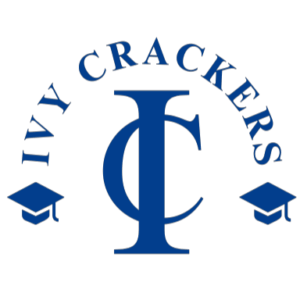Higher Education Initiatives for First-Generation College Triumphs
Higher education is increasingly seen as an important pathway towards unlocking career opportunities and personal growth. Through college, young adults are transformed by a range of academic, social, and cultural experiences that broaden their horizons and enable them to reach their full potential.
However, while this journey is usually rewarding, it can pose several unique challenges for first-generation college students. These individuals, who often come from families where neither parent has completed a four-year degree, may face pressures and uncertainties that can impact their ability to thrive academically and socially.
Given these challenges, many higher education institutions around the country are proactively working to address the needs of first-generation college students. These institutions are pursuing innovative strategies to provide comprehensive support networks that equip students with the skills, knowledge, and confidence they need to succeed.

In this blog post, we will highlight some of the ways that colleges and universities are empowering first-generation college students to fully participate in and benefit from the higher education experience.
- Specialized Support Programs: First-generation students come from a unique background, with their lack of knowledge of the college experience sometimes causing challenges in their adaptation to higher education. This is why, in recognition of these distinctive needs, many colleges and universities have taken crucial steps to put specialized support programs in place. Through these programs, which are enveloped by the desire to create a sense of community among first-gen students, institutions offer tailored resources like mentoring, workshops, and academic advising that are specifically designed to support them. These initiatives help first-generation students overcome some of the barriers associated with college life, and provide them with emotional assistance and a sense of belonging. Ultimately, the programs foster an environment that not only addresses academic challenges, but also builds a supportive community that strengthens the students’ sense of confidence and success.
- Financial Assistance: As we strive towards a more equitable and inclusive society, it’s crucial that we address the financial challenges faced by first-generation college students. These financial barriers can often be daunting and overwhelming, serving as significant obstacles to their higher education dreams. However, we’re witnessing a growing commitment from higher education institutions across the country towards offering a range of financial assistance programs aimed at breaking down these very barriers. Through an array of scholarships, grants and work-study opportunities, these institutions aim to alleviate the financial burden placed on first-gen students. By making college more financially feasible and accessible for them, they hope to increase the number of first-gen students who not only enroll but graduate with their respective degrees. Such financial assistance programs demonstrate a deeper commitment to supporting the educational pursuits of first-gen students, paving the way towards a more meritocratic and just society for all.
- Orientation Programs: With unique challenges that come with being the first in their family to attend college, there are added pressures that can sometimes be difficult to navigate. Fortunately, many colleges and universities have recognized this and have implemented orientation programs tailored specifically to the needs of these students. These orientation programs provide an incredible array of resources and support systems. They include informative sessions that help students understand how to navigate the academic requirements of college, how to access vital support services, and how to build a strong social network within the college community. By attending these programs, first-gen students are well equipped to face the challenges of college, and they can receive the support they need to thrive in their academic pursuits.
- Mentorship Programs: Mentorship is a critical component to the success of first-generation college students. These students often come from backgrounds where there is little to no family experience with higher education, making their journey through college a unique and challenging one. However, higher education institutions are now recognizing the importance of mentorship and are implementing programs to help guide first-gen students through their academic journeys. These mentorship programs are designed to pair experienced faculty or peers with first-gen students, thus providing them with support, guidance, and motivation to overcome any hurdles they may face. Mentors are instrumental in providing valuable insights and advice to first-gen students, who might otherwise feel isolated and overwhelmed in the college environment. They can offer helpful strategies and tips for academic success, as well as guidance on navigating complex college systems such as financial aid and registration. Additionally, mentors can offer emotional support and encouragement to help first-gen students persist through challenging times on their journey to graduation.
- Cultural Competency Training: Many higher education institutions are taking great strides to accommodate the immense diversity of their student body, recognizing that not all students have the same cultural background or experiences. Because of this, many universities have made a commendable effort to invest in cultural competency training for their faculty and staff. The aim of this training is to equip educators with an understanding of how to address the unique challenges that many first-generation students face when they begin their college journey. By establishing a more supportive and understanding atmosphere, higher education institutions are better prepared to foster the academic and personal growth of their students. With the help of cultural competency training, educators can be more aware and sensitive to the different cultural identities and backgrounds that their students may possess.
- Academic Support Services: First-generation college students may face unique struggles that their more academically experienced peers may not encounter. These students are navigating unfamiliar territory and may feel overwhelmed by the rigorous demands of college coursework. In recognition of this, higher education institutions are determined to provide academic support services that cater to and meet the individual needs of these students. These resources include, but are not limited to, one-on-one tutoring, group study sessions and writing centers, among others. By providing these services, institutions aim to create a supportive community that helps level the playing field and empowers first-gen students with the tools they need to succeed academically.
Over the years, higher education has undergone significant changes which have prompted a commitment to supporting diverse needs among students. First-generation college students face unique challenges, and as such, educational institutions are taking proactive measures to foster an inclusive and supportive environment through various initiatives such as specialized programs, financial aid, mentorship programs, and cultural competence training. These multi-pronged approaches aim to ensure that the transformational power of college education can be accessed by everyone, regardless of their family history or background.
Colleges and universities recognize the importance of creating a sense of community and providing targeted resources to empower first-generation students to excel not only academically but also in every aspect of their college experience. These comprehensive efforts reflect the dedication of institutions to provide extra support to students to help them thrive and achieve their goals in higher education.
By doing so, higher education is playing a crucial role in creating a more equitable society where everyone has an equal opportunity to succeed.
How can IvyCrackers help you?
When it comes to making informed decisions about a program, there is often no substitute for firsthand knowledge and advice from those who have been through similar experiences. That’s why we, at IvyCrackers, firmly believe that one of the best ways to gain valuable insights about a particular program or university is to interact with current students and alumni of that very university.
Connecting with them can give you a more comprehensive understanding of what it is be part of that university, both in terms of coursework and extracurricular activities, as well as the kind of career options that may be available after graduation. Our “Mentor Session” initiative is designed to help facilitate these connections by pairing you with members of our community who can share their personal experiences and perspectives with you.

Our team of experts, at IvyCrackers, has been passionately dedicated to helping countless candidates achieve their academic and professional goals. We have worked tirelessly to provide comprehensive services that are tailored to your specific needs, including refining your application essays, conducting mock interviews, perfecting your resumes, and strengthening your profiles. Our commitment to excellence is reflected in the success stories we have helped create, with our clients consistently achieving remarkable feats in their chosen fields.
We believe that everyone has the potential to excel, and we are here to help you unlock that potential. So why not head over to our ‘Services‘ section now and discover how we can help you fulfill your dreams today?
Visit our Youtube Channel, Linkedin or Instagram Page for regular updates!



